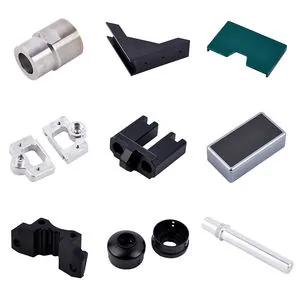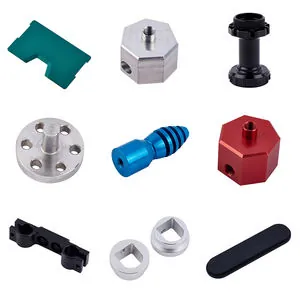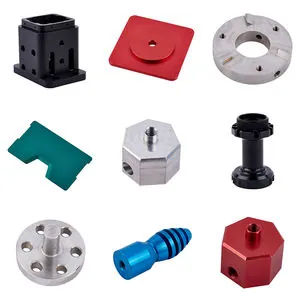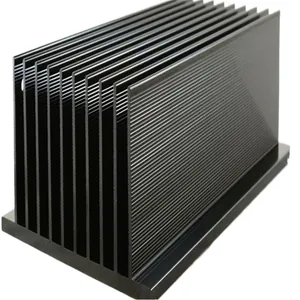CNC Machining Italy: Manufacturers & Industry Guide
Market Size and Growth
Italy has a rich tradition in precision mechanics. CNC machining sits at the heart of that story. It serves automotive suppliers, aerospace clusters, medical devices, packaging machines, and luxury goods. Italian workshops pair craft culture with modern automation, so they deliver complex parts with style and speed.
The market includes many small and mid-sized firms. They work inside regional networks in Lombardy, Emilia-Romagna, Veneto, and Piedmont. These clusters share tooling vendors, software integrators, and training centers. Dense networks keep lead times short and push practical innovation.
Demand shifts often start in automotive and packaging. Aerospace and energy add high-mix, high-value work. Medical and dental drive micro-machining and quality systems. Many shops now add five-axis capacity, pallet systems, and robots. They produce short runs with tight tolerances and quick changeovers.
Digital tools spread fast. Machine monitoring helps managers spot idle time. CAM and simulation reduce scrap. More firms use hybrid setups that combine milling, turning, and grinding in one cell. Simple data dashboards guide decisions and help teams act in real time.
Policy and investment also matter. EU programs promote digitalization and green processes. Tax credits support capital equipment and software. Local technical institutes offer dual training. These pieces raise productivity and help small firms compete with larger rivals.
Leading Companies
The Italian landscape mixes global brands and deep specialists. Some build large gantry systems for aerospace. Others sell compact centers for molds and dies. A few lead in controllers, spindles, and automation. These companies mirror Italy’s balance of design, precision, and practical engineering.
FPT Industrie
FPT Industrie focuses on boring and milling technology. The company grew in the industrial belt of northern Italy. It serves mold and die, energy, aerospace, and general engineering. Its machines target rigidity, thermal stability, and reliability under heavy cuts.
FPT builds horizontal boring mills, bridge mills, and flexible machining centers. Many models support five-face machining and long travels. Users can combine automatic heads, rotary tables, and pallet changers. The company also offers process engineering, training, and remote service.
The core industries include power generation, large molds, and precision structures. Shops use FPT machines to mill pockets, surfaces, and deep cavities. High torque spindles handle tough alloys. Dynamic compensation keeps accuracy in long machining cycles.
Key innovations include smart thermal control and modular heads. The company refines damping to reduce chatter and improve surface finish. Control packages integrate probing, tool measurement, and collision checks. Customers value the balance between speed, accuracy, and uptime.
FPT follows international norms for quality and safety. It aligns with ISO management systems in design and production. Many solutions also integrate CE compliance and risk assessment. This lowers validation time for end users.
Breton
Breton is famous for high-speed machining and advanced materials. The company started with stone and composites, then expanded into metals. It builds gantry mills and five-axis centers for large, precise parts. Breton links machine design with materials science and software.
Breton machines cut aluminum, steel, and composite structures. Aerospace suppliers use them for skins, frames, and tooling. Automotive and racing teams mill molds and fixtures. Add-on probes, cameras, and laser tracking help verify geometry during the cut.
Breton invests in spindle technology and structural stiffness. Frames use optimized ribs and damping. Linear motors and high-resolution scales keep motion smooth. The firm also develops CAM, simulators, and digital twins that mirror each machine’s real behavior.
Core industries include aerospace, automotive, energy, and large molds. Some customers process carbon fiber and resin systems. Others finish complex metal parts in one setup. The result is fewer fixtures and better repeatability across shifts.
Breton’s certifications reflect global projects. Quality systems support traceability, documentation, and safety. Software tools capture data for audits and process control. End users can align production with aerospace and automotive standards without heavy rework.
Mandelli Sistemi
Mandelli Sistemi focuses on flexible machining centers. The company grew up in the Emilia-Romagna and Lombardy supply chains. It serves aerospace, energy, and industrial machinery. Its designs aim for accuracy under continuous operation and simple maintenance.
Mandelli offers multi-pallet horizontal centers and five-axis solutions. Many models feature tool magazines for high-mix work. The machines integrate probes, pre-setters, and process monitoring. Users link them with AGVs and robots to build compact cells.
Industries include aerospace structures, gearboxes, and compressor parts. The machines handle long cycles with real-time thermal drift control. Smart lubrication and dust extraction extend component life. Operators use clear HMIs to adjust parameters quickly.
Innovation shows in energy-saving drives and digital diagnostics. The company supports predictive maintenance and remote assistance. Motion algorithms manage jerk, cornering, and surface quality. These features keep cycle times low and improve first-part yield.
Mandelli maintains quality management and safety systems. Documentation helps customers pass audits and qualify lines. Service teams deliver training and process advice. This support reduces ramp-up risk for complex programs.
| Company | Founded | Core Products | Industries | Certifications |
|---|---|---|---|---|
| FPT Industrie | Late 1960s | Boring mills, bridge mills, 5-axis centers | Molds & dies, energy, aerospace | ISO-aligned quality & CE safety |
| Breton | Early 1960s | High-speed gantry and 5-axis centers | Aerospace, automotive, composites, molds | Quality systems for global audits |
| Mandelli Sistemi | Mid 20th century | Flexible HMCs, multi-pallet 5-axis lines | Aerospace, machinery, powertrains | Quality and safety management |
Trade Shows and Industry Events
Italy hosts several strong manufacturing fairs. These events showcase new machines, cutting tools, software, and automation. They also connect buyers with integrators and training bodies. A visit often leads to quick benchmarks and fast procurement decisions.
BI-MU (Milan)
BI-MU is a major CNC and metalworking exhibition in Milan. It draws machine builders, toolmakers, and software vendors. Visitors come from automotive, aerospace, medical, and general engineering. The fair highlights Italian innovation and global partnerships.
It features turning, milling, grinding, and additive systems. Demonstrations show live machining, probing, and tool management. There are tracks on digital factories, sustainability, and workforce skills. Many SMEs launch niche tools and accessories here.
BI-MU is typically biennial. It alternates with other European shows. The organizer curates themed areas for startups and robotics. Buyers can compare machines side by side and meet finance providers. This shortens the path from demo to deal.
MECSPE (Bologna)
MECSPE focuses on industrial technologies and subcontracting. It brings together CNC shops, machine vendors, and automation firms. The show has pavilions for materials, surface treatment, and metrology. It is a practical event for networking and sourcing partners.
Live districts recreate a digital factory on the floor. You see robots load pallets and vision systems check parts. Training centers run short courses on CAM and quality. Many Italian clusters send delegations to meet suppliers.
MECSPE happens annually. It rotates locations within Italy, and Bologna is a key venue. The show is friendly to small firms and first-time buyers. Exhibitors include technical schools and research centers. This mix supports hiring and upskilling plans.
| Event | Date | Location | Highlights |
|---|---|---|---|
| BI-MU | Biennial | Milan, Italy | CNC machines, tooling, robotics, digital factory |
| MECSPE | Annual | Bologna, Italy | Subcontracting, live factory demos, training zones |
Impact of Global Trade Policies
Trade rules shape orders and sourcing in CNC machining. Export controls, tariffs, and sanctions can change project timing. Currency swings affect machine prices and tooling costs. Italian firms manage risk by diversifying markets and suppliers.
Supply chains face delays in electronics, castings, and specialty steels. Many shops now dual-source critical parts in Europe. They stock more spindles, probes, and drives. Simple vendor scorecards track lead time, quality, and service response.
EU green policies drive energy audits and machine upgrades. Incentives support new motors, inverters, and recovery systems. Cutting fluid management reduces waste and health risks. Process changes lower power use while keeping accuracy.
Trade agreements open paths to new regions. Aerospace and medical work needs documentation and traceability. Italian companies build strong quality files to pass audits abroad. Clusters help smaller firms learn rules and share templates.
Local substitution grows in special tooling and fixtures. Integrators re-engineer imported parts when needed. They redesign for standard components available in Europe. This keeps machines running and protects delivery promises.
Global competition remains intense. German, Japanese, and American builders push technology and service. Asian suppliers compete on price and scale. Italian firms answer with flexible engineering and fast customization. Speed and ingenuity are key advantages in short-run production.
Geopolitics can move fast. Firms create scenario plans for currency, energy, and logistics. They lock some prices with contracts and hedge others. Teams practice quick changeovers and modular fixturing. This gives options when orders swing.
Part 5: Conclusion
Italy’s CNC machining industry blends craft and technology. Clusters, skilled people, and flexible builders set a strong base for growth. Digital tools, automation, and energy upgrades make shops leaner and faster. The path forward looks bright for firms that keep learning.
Challenges will test even strong teams. Trade shifts, supply risks, and price pressure demand quick action. Clear processes, smart partners, and steady training reduce shocks. Italian companies that move fast and keep quality high will stay ahead.












